
Instead of seeing hundreds of new cases each month targeting alleged BitTorrent pirates, there were none.
While the reason for this hiatus is unknown, we can now confirm that at least one of the companies hasn’t halted its efforts at all. Instead, it changed the venue, which isn’t without controversy.
In the U.S, copyright-related court cases are exclusively a matter of federal law, which is something every first-year law student knows. You can’t bring a copyright suit in state court, period. However, that’s exactly where Strike 3 has moved.
After filing over 1,000 cases in federal courts earlier this year, the adult entertainment company moved its activities to a Florida state court. In recent weeks, it has filed more than a dozen new cases.
Although these cases relate to copyright infringement, Strike 3 submits them as a complaint for “a pure bill discovery.” This essentially means that it asks the court to give it the right to figure out who the defendants are.
In this case, this means a subpoena directed at ISPs to identify the account holder that’s linked to the allegedly infringing IP-addresses. This tactic provides the same result as going through a federal court and allows Strike 3 to demand settlements as well.
While the number of cases in state court is relatively modest, these cases target a substantially higher number of defendants per case. That’s also one of the main advantages. By filing a single case with dozens or hundreds of defendants, the filing fee per defendant is very low.
In federal court, the company generally targets one defendant per complaint, which is far more expensive. And while Strike 3 mentions that it is requesting the information for a subsequent copyright lawsuit, it will likely try to get a settlement first.
Another advantage is that the company doesn’t have to deal with the federal courts that are increasingly reluctant to grant discovery. Just a few weeks ago, Strike 3 was denied a subpoena, for example.
The question is whether this shortcut is appropriate. While we have seen it being used in Florida a few years ago, it certainly isn’t common. And this time there is pushback as well.
TorrentFreak spoke to several attorneys who represent defendants in these cases. They believe that Strike 3 is wrong to use the state court for this purpose. However, in several cases, the Miami-Dade County Court has already granted subpoenas against a variety of ISPs, including AT&T and Comcast.
Attorney Jeffrey Antonelli and his firm Antonelli Law‘s local counsel Steven Robert Kozlowski objected to these subpoenas on behalf of several defendants. In his motion to quash he highlights a variety of problems, including the earlier observation that copyright cases don’t belong in a state court.
“This Court lacks subject matter jurisdiction over the copyright claims at issue in the lawsuit which the subpoena to Comcast is premised upon. Federal courts have original and exclusive jurisdiction over civil actions arising under federal copyright law,” the motion reads.
Another problem is that the purpose of the “pure bill of discovery” is to obtain facts or information a defendant has. However, the targeted ISPs are not defendants in these cases.
Finally, the motions highlight that the IP-addresses may not even be linked to Florida, where the court is based. Strike 3 should have known this, as they always disclose the location in federal court. However, they may have omitted it on purpose, the defense argues.
“In fact, Plaintiff’s failure to allege that Defendant has sufficient contacts with the state of Florida or is a Florida resident is likely a purposeful omission as Defendant is not a resident of Florida,” the motion to quash reads, showing that the IP-address is linked to Minnesota.
TorrentFreak spoke to Florida-based attorney Cynthia Conlin who has dealt with these ‘trolling’ lawsuits, both in federal and state court. She believes that Strike 3 has moved its efforts to the Miami-Dade County court in an attempt to save costs.
“The most obvious advantage in filing a multi-doe case is economic. Strike 3 need only pay a single filing fee to obtain identifying information for several dozen defendants, as opposed to $400 for each single-doe federal lawsuit,” Conlin says.
In federal courts, these cases typically include one defendant. So filing 50 cases would cost $20,000 in filing fees alone. In the recent state court cases, all defendants are grouped in a single case, which is much cheaper.
“By filing multi-doe suits, Strike 3 is increasing its odds of receiving settlements exponentially. So far it has filed 17 lawsuits in Miami-Dade County, and counting,” Conlin notes.
While Conlin doesn’t believe that these cases are allowed in state courts, judges often sign off on the subpoenas since they are not well-versed in copyright litigation. This is a loophole Strike 3 tried to exploit.
“Strike 3 would not be able to get away with filing a multi-doe lawsuit in federal court. Mass-doe cases have been done before in many federal jurisdictions, and the federal courts will no longer allow them. State court is the only place Strike 3 can get away with it,” she says.
This isn’t the first time this maneuver has been carried out. A few other companies have done so and some argue that it’s a win-win for all, as it can result in lower settlements as well.
Conlin and other defense attorneys don’t buy that and will continue to file motions to quash. At the time of writing, the Miami-Dade County Court has yet to rule on these subpoenas.
Source: TF, for the latest info on copyright, file-sharing, torrent sites and more. We also have VPN reviews, discounts, offers and coupons.

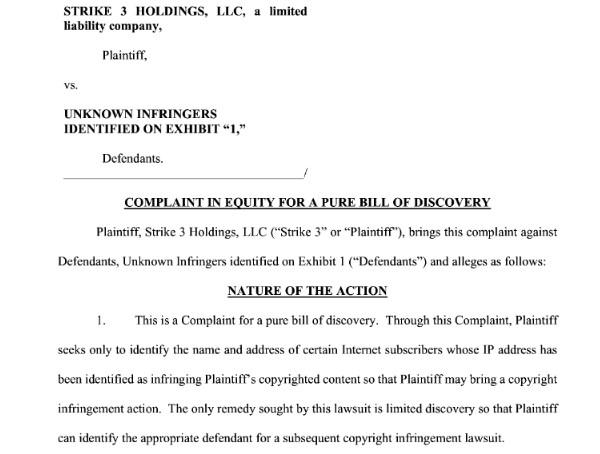
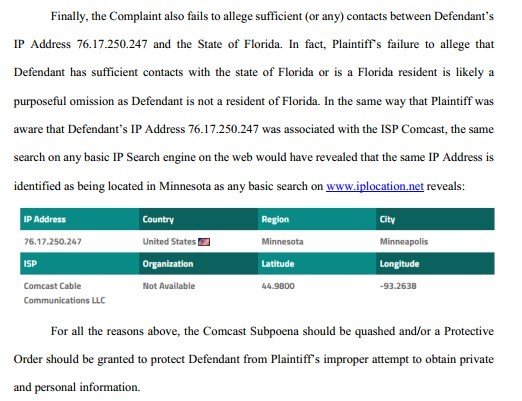


 More than a quarter-century after the United States, Canada, and Mexico approved the NAFTA trade agreement, the North American countries have now signed off on a new trade deal.
More than a quarter-century after the United States, Canada, and Mexico approved the NAFTA trade agreement, the North American countries have now signed off on a new trade deal.
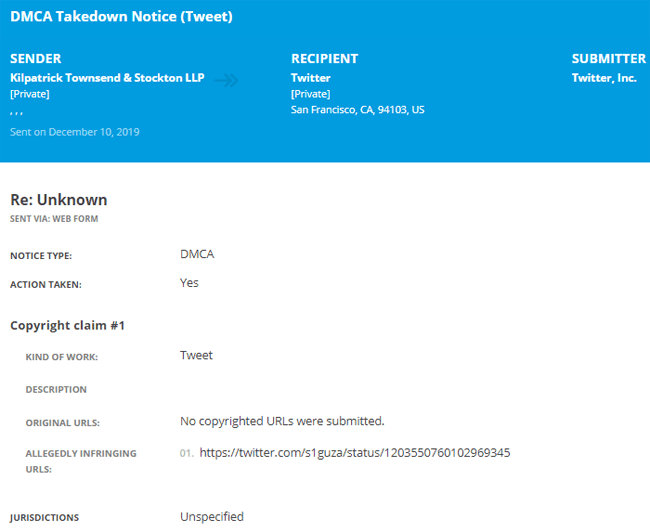

 While most piracy activity has shifted to streaming in recent years, U.S. courts have still been overloaded with BitTorrent related piracy lawsuits.
While most piracy activity has shifted to streaming in recent years, U.S. courts have still been overloaded with BitTorrent related piracy lawsuits.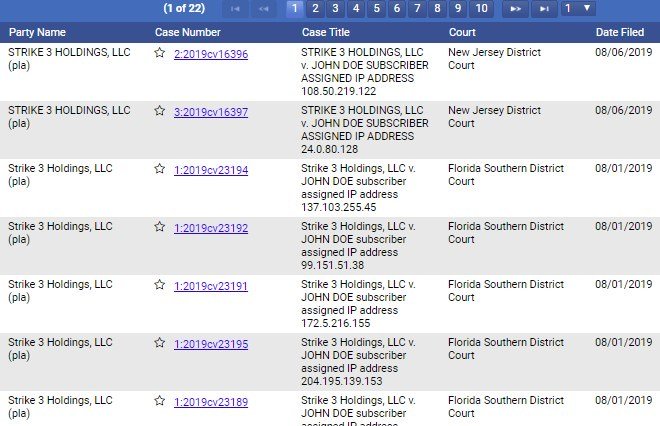 The sudden halt in activity is remarkable, especially since both companies have different legal teams. It’s also a clear deviation from previous years. However, there’s no clear explanation for the hiatus, nor do we know how long it will last.
The sudden halt in activity is remarkable, especially since both companies have different legal teams. It’s also a clear deviation from previous years. However, there’s no clear explanation for the hiatus, nor do we know how long it will last.

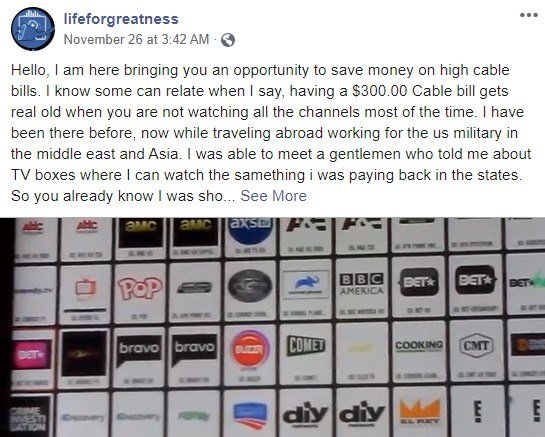

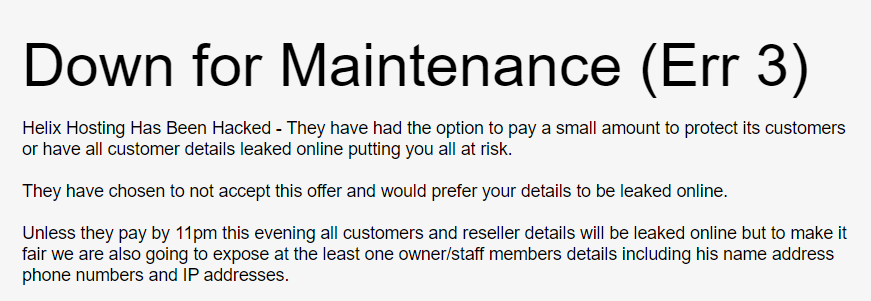
 This week we have two newcomers in our chart.
This week we have two newcomers in our chart.